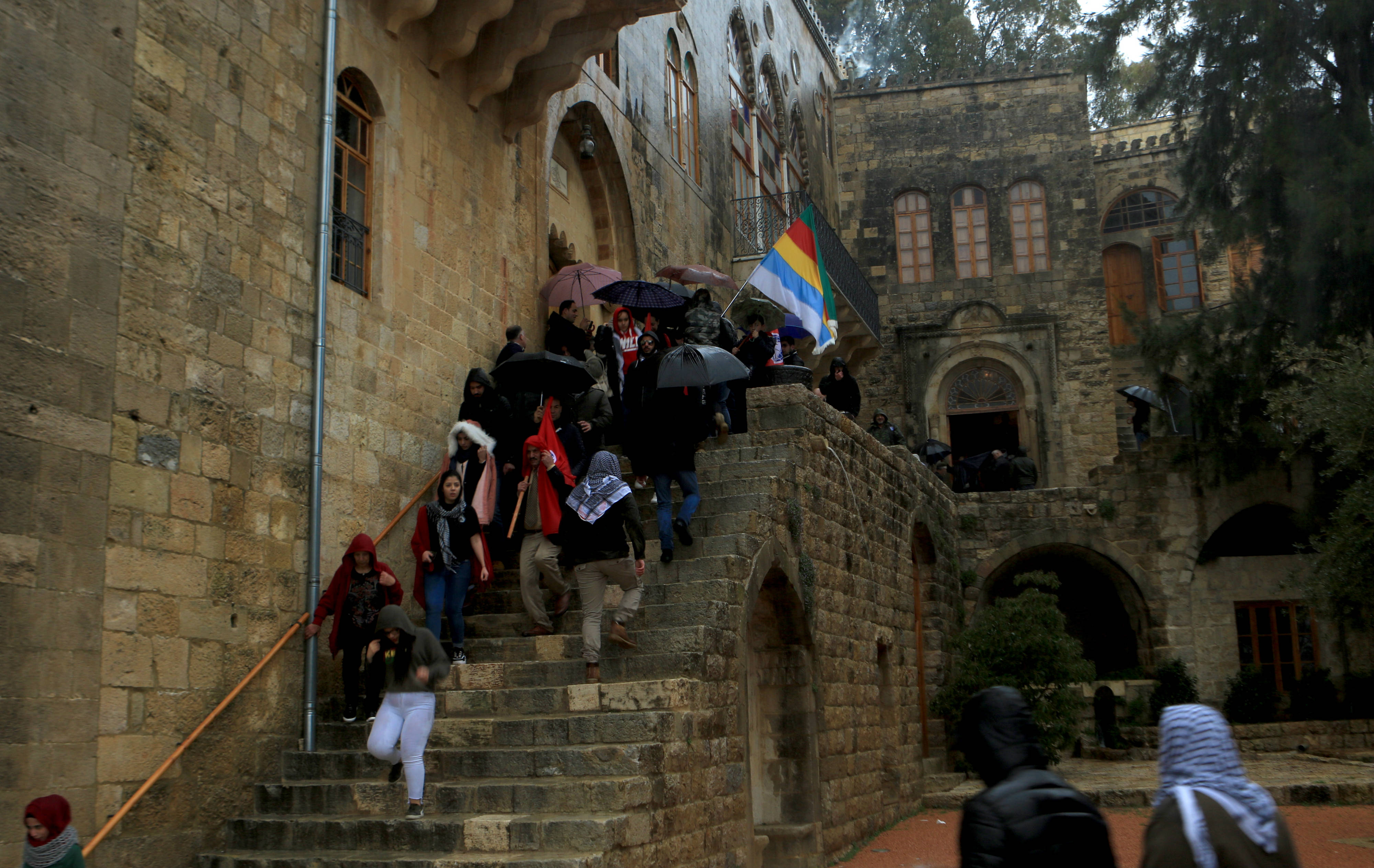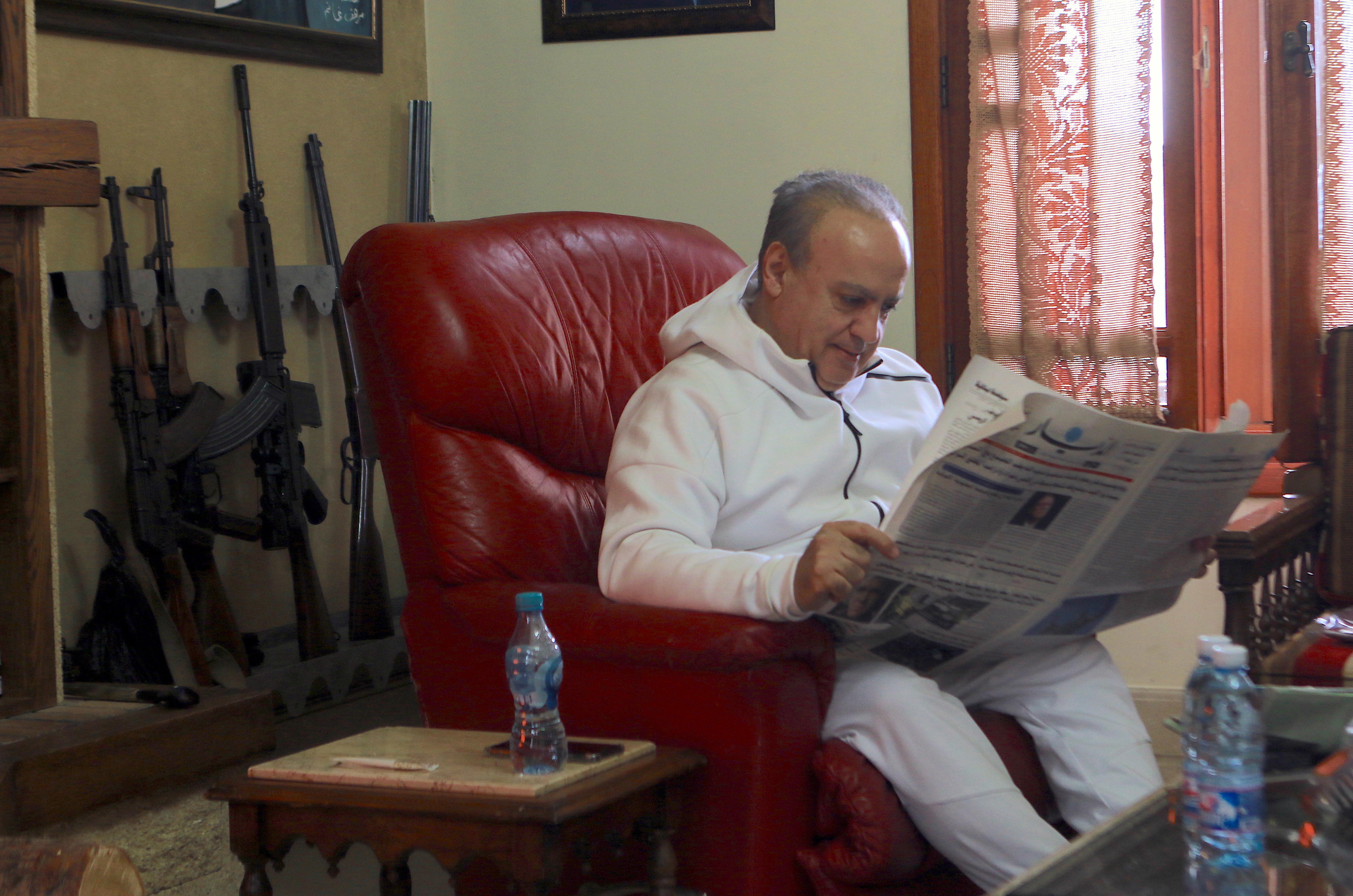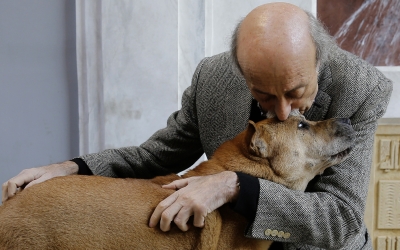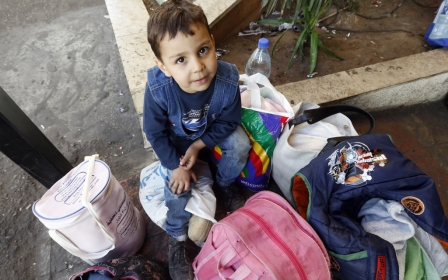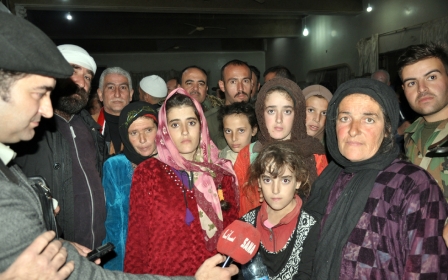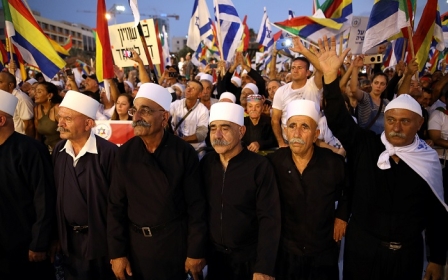Lebanon's Druze under pressure as a resurgent Syria flexes its muscles
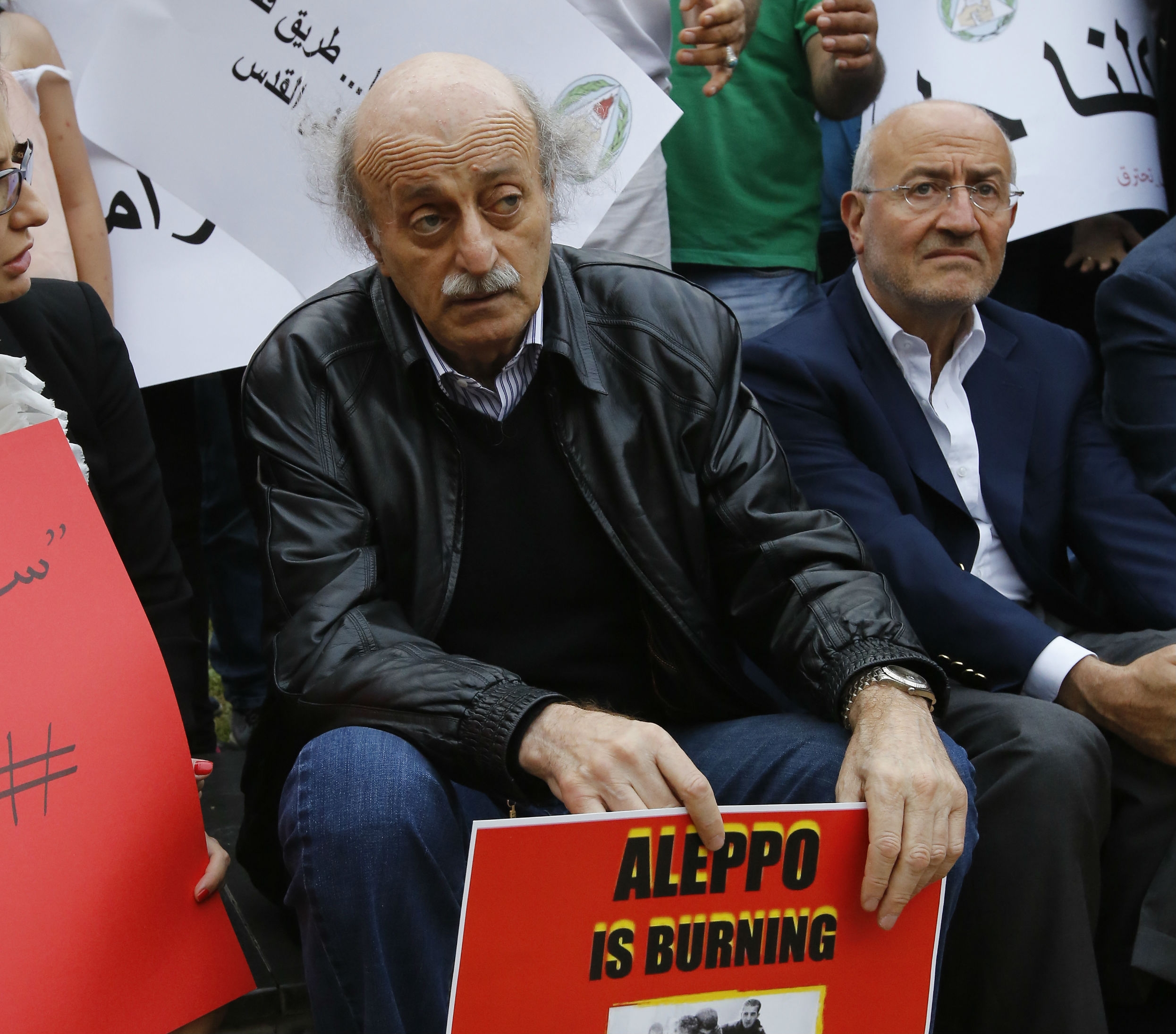
Dark clouds hung over the Chouf Mountains on 16 March as Lebanon's Druze commemorated the 42nd anniversary of Kamal Jumblatt's assassination.
Jumblatt, who led the Druze and was a key actor in the Lebanese Civil War's early stages, was killed by assailants likely working for the Syrian government.
Today, the community in Lebanon is feeling the effects of Syrian influence once again, as a newly resurgent Damascus has helped widen a fissure between Lebanese Druze, with deadly results.
This year's anniversary took place against the backdrop of political fallout from a string of clashes that have taken place in the Chouf between Jumblatt's Progressive Socialist Party (PSP), now run by his son and grandson Walid and Taymour, and its rivals.
The PSP has long held dominance over the Druze community. But as the Syrian government's power in Lebanon has grown in the last year following a string of military victories back home, the party's Syrian-backed rivals have sought to challenge the PSP's hegemony.
New MEE newsletter: Jerusalem Dispatch
Sign up to get the latest insights and analysis on Israel-Palestine, alongside Turkey Unpacked and other MEE newsletters
Clashes between the groups over the past year have seen two killed, and have plunged the mountain-dwelling community into the greatest instability it has experienced in years.
"The Syrian regime, through its local allies, is trying to regain momentum in Lebanon and in the mountain in particular, and this is something that we will not allow," PSP spokesman Rami Rayees told Middle East Eye.
"The Syrian regime is preparing a comeback after it has been ousted from Lebanon in 2005, and the Syrian regime's methods are very well known, through mobilising their allies in Lebanon to try to regain local power. This is not new and of course we know that we are under pressure from the Syrian regime."
Spiralling tensions
The recent troubles started in May 2018, when a PSP supporter was killed by supporters of the rival Lebanese Democratic Party (LDP) in the wake of parliamentary elections two days earlier.
Tensions erupted yet again in November when supporters of the anti-PSP Arab Tawhid Party entered the town of Moukhtara and according to an MEE source shot at the Jumblatt family's palace.
Days after, a heavy gun battle took place between Lebanese security forces and fighters loyal to the Tawhid Party's leader, former Environment Minister Wiam Wahhab, which resulted in the death of his bodyguard.
The security forces claimed they had sought to bring Wahhab in for questioning after he insulted Prime Minister Saad Hariri's family, but the party leader maintains that they had in fact been dispatched on an assassination mission that had involved Jumblatt himself behind the scenes.
Things have remained tense ever since, on the ground, on the airwaves and in the courts, as cases surrounding the clashes roll on. Although efforts to reconcile the two sides are underway and are being mediated by Lebanese President Michel Aoun himself, as of this month, the talks still have a long way to go.
Adding fuel to the fire
The LDP and Tawhid are rivals, but they share two important traits: opposition to the PSP and links to the Syrian government and its Lebanese ally Hezbollah.
Both parties are relatively irrelevant on a national level. However, they seem to be attempting to change this by aligning themselves further with Damascus as the Syrian government consolidates its position after eight years of civil war.
"This will certainly lead to one team being ahead of the other," Wahhab said from his mansion in the Chouf. "This is one of the fears of Walid Jumblatt, that the victory of Syria would lead to our team and that of Talal Arslan being ahead of his."
LDP leader Talal Arslan's media adviser agreed: "I think really [when] President Bashar al-Assad wins, after all the war, we consider ourselves to win with him."
Adel Arslan, Talal Arsaln's nephew and an independent-minded emerging politician critical of all the establishment Druze leaders, told MEE the Syrian government had been pushing his uncle to make political inroads at the Jumblatts' expense.
"The Syrians are doing everything they can to make Talal strong," he said.
According to Adel Arslan, the Syrians want to show Walid Jumblatt, who has been a fierce critic of Damascus in recent years, that they can put him under political pressure within his own community.
"They're just trying to tell Walid, 'look we can put you in a cup,'" he said. "And this is why they're trying to push Talal [to be] stronger and stronger, and giving him more power."
Yet the younger Arslan believes his uncle and the LDP have squandered their chances to stand up to Walid Jumblatt, despite the support Syria has given them.
The veteran Druze leader conceded some of the PSP's power in a compromise with Arslan in October, allowing the LDP's Saleh Gharib to be named the state minister for refugee affairs. But ultimately, Adel believes, Arslan won't be able to stand up to Jumblatt's power.
Druze religious leadership affected
Syria's reach has also extended into the Druze community's spiritual leadership.
In March, Assad declared that Lebanese Druze sheikhs, the religious leaders of the community, would only be allowed to enter Syria if their ID cards were signed by the leading pro-Syrian sheikh in Lebanon instead of the one officially elected by the Druze Council of Sheikhs.
A war of words soon ensued on Twitter between Talal Arslan and Walid Joumblatt over the issue.
Sheikh Ghassan al-Halabi, who is part of the Council of Sheikhs, is keen to cast the recent tensions among the Druze as result of foreign machinations, rather than some deep-lying schism.
"We have some old habits and some schisms," he told Middle East Eye. "This conflict does not have deep roots."
Halabi added that he was in possession of a secret letter sent by a "great sheikh" in Lebanon that seeks to establish an "honour pact" between the leaders of the Druze to solve the current political crisis.
According to Halabi, foreign political interference, especially from Syria, is behind the instability.
"[There are] many superficial movements and games in Lebanon," he said. "The regime in Syria doesn't [take its own] steps in the country, it makes [its] men in the country [do] this," he added.
The decree on Lebanese sheikhs crossing into Syria, he said, was "to push against Jumblatt".
Attempts are being made to resolve the fractures in the community, with PSP leaders meeting Hezbollah politicians earlier this month to deal "with all the issues between the two sides' delegations," he said, in addition to negotiations between Jumblatt and Arslan.
"We've had worse times, and were still going to be here later on, so I'm not worried at all," Taymour Jumblatt told MEE at his grandfather's commemoration.
Wadia Mughamis, a former militia fighter under Kamal Jumblatt, was more circumspect.
"The situation of the country isn't good," he said.
This article is available in French on Middle East Eye French edition.
Middle East Eye delivers independent and unrivalled coverage and analysis of the Middle East, North Africa and beyond. To learn more about republishing this content and the associated fees, please fill out this form. More about MEE can be found here.


